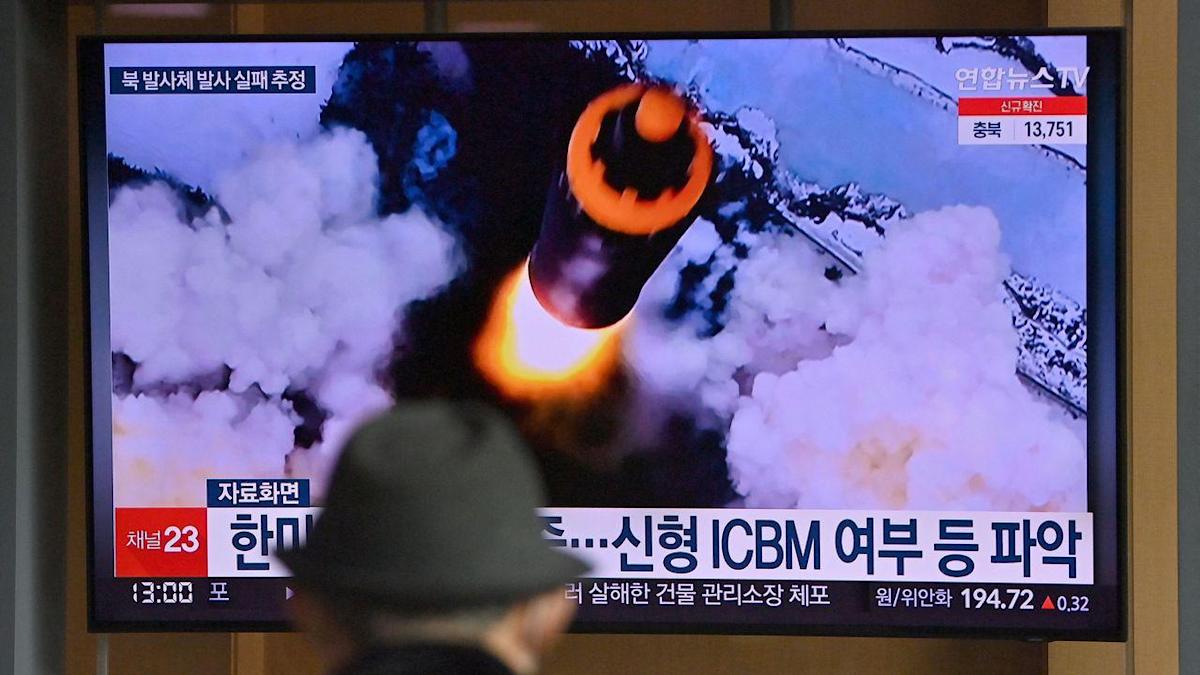
North Korea tested a suspected intercontinental ballistic missile on Thursday for the first time since 2017, raising new alarms about its ability to strike the United States, according to South Korean and Japanese officials.
Why it matters: The banned long-range missile, which Japan says flew to an altitude of 3,728 miles and covered a distance of 596 miles, threatens to destabilize the region at a time when the Biden administration and much of the world are consumed by the war in Ukraine.
Stay on top of the latest market trends and economic insights with Axios Markets. Subscribe for free
-
News of the test broke just as Western leaders were gathering in Brussels for three high-stakes summits to discuss their response to the Ukraine crisis.
-
It’s North Korea’s 11th missile launch of the year, but the longest-range test since North Korean leader Kim Jong-un imposed a moratorium on ICBM and nuclear tests to pursue diplomacy with former President Trump.
What they’re saying: “This launch is a brazen violation of multiple UN Security Council resolutions and needlessly raises tensions and risks destabilizing the security situation in the region,” White House press secretary Jen Psaki said in a statement.
-
“The door has not closed on diplomacy, but Pyongyang must immediately cease its destabilizing actions.”
-
“The United States will take all necessary measures to ensure the security of the American homeland and Republic of Korea and Japanese allies.”
The latest: South Korea’s military said it fired multiple missiles in response to North Korea’s test on Thursday to demonstrate its “retaliatory” and “precision strike” capabilities.
More from Axios: Sign up to get the latest market trends with Axios Markets. Subscribe for free




